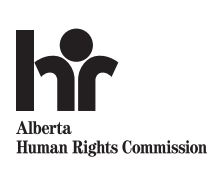Walter Pavlic, Q.C., Arooj Shah
Published:December 23, 2021
-MILTAIKINS
The Human Rights Tribunal of Alberta (the “Tribunal”) recently dismissed a complaint from an individual who claimed that wearing a mask was against his religious beliefs, offering employers insight into how the Tribunal determines whether religious beliefs require accommodation.
The complainant alleged that a store’s policy that required him to wear a mask discriminated against him because of his religious beliefs, stating that “God created me in his own image and if he cannot see that image because it is covered with a face mask then I have committed sacrilege.”
To receive the protections of the Alberta Human Rights Act (the “Act”), a complainant must first establish that they have a characteristic that falls within a protected ground set out in the Act. In this case, the complainant claimed his religious beliefs should be protected, yet did not identify what religion or faith tradition he followed. While he did refer to passages from scripture, those passages did not relate to a tenet or practice of face coverings. The complainant also failed to show how his belief was tied to a religion or was religious in nature.
The Tribunal emphasized that to qualify for the protected ground of religious belief, a complainant must do more than “identify a particular belief, claim that it is sincerely held, and claim that it is religious in nature.” The complainant must establish that the sincerely held belief is a tenet of a religious or faith tradition, and that the belief is a fundamental aspect of expressing that faith.
Takeaways for Employers
Many employers who have introduced COVID-19 vaccination policies have received requests from employees seeking exemptions on religious grounds.
The Tribunal’s decision in this case is important for employers as it outlines the analysis that the Tribunal will likely follow when determining whether an individual has a sincerely held religious belief that requires accommodation. The decision also confirms that requests for accommodations on the basis of religion must be supported by objective information and evidence.




